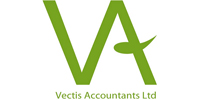Chartered certified accountant Raphael Coman of Coman & Co highlights some key considerations about taking salary and dividend from a company
Paying yourself from the business you own and run is more complex through a company than a partnership or sole trader structure. You can receive a dividend as shareholder and also a salary as director. A key attraction of forming a company is that there is less tax to pay on dividends. However, there are possible drawbacks to this strategy.
- If you extract profits as dividend and you do not have any other income, you will waste your personal allowance. A salary is deducted from profits subject to corporation tax while a dividend is not deducted from profits subject to corporation tax. Any income which is below the personal allowance is not subject to income tax. However if the business owner is paid as salary, rather than paid as dividend, the profit extraction will obtain corporation tax relief.
- Even if you take most of your profits as dividend, it is still advisable to draw a small salary to preserve entitlement to state pension and other benefits.
- Salary increases the amount of contributions that can be paid into a personal pension, whereas dividends do not. You should consider setting up a company pension scheme as an alternative, if you wish to receive dividends and make a pension contribution.
- Salaries can be allocated to directors at different rates, whereas a shareholder is entitled to a dividend at a fixed rate for each share. Non-working shareholders could receive dividends at the same rate as those who work. It is possible to solve this problem by creating different classes of share, with different dividend entitlements. HMRC may challenge this arrangement, if it thinks it is wholly or mainly for avoiding tax.
- Salaries can be paid even when the company is making a loss, whereas dividends can only be paid out of profits for the year, or any undistributed profits from previous years.
- You will not have to operate PAYE on dividend payments, but it is essential that the correct procedure is followed.
- Paying a salary, rather than a dividend, reduces Corporation Tax.
- There are different cash flow implications. Tax and National Insurance is deducted from salaries on a monthly basis. Dividends must be paid within nine months of the company year-end. Any extra income tax on dividends is due by the following 31 January, and payments on account may be required.
There are numerous factors that should be taken into account when deciding how to extract profits from the business, and in practice a mixture of salary and dividend is probably the most suitable course of action. Extraction of profits is a complex area of tax law, so seek tailored professional advice.
Written by Raphael Coman of Coman & Co.
